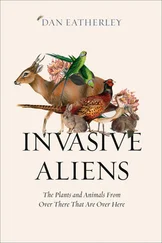‘Damn, what a great time we could have,’ said Candyman and puffed on his cigar. ‘You and me, Candygirl.’
Before Mum and Geraldine could come running over, I had managed to point out Geraldine’s flat to him, and also told him that I had been without a father for the last few years. Candyman asked what had made Dad pack his rucksack and leave home and I replied I had no idea. Parents are mysterious, he said then, you can’t get a proper handle on them, they slip away from you like eels; they’re not really interested in solving the problems. The problems? I said. Yes, he said. The problems. The really difficult ones. The ones even you can barely bring yourself to talk about. Childhood on the other hand was something we could talk about, he thought. Being a child was difficult, it has to be said, but childhood was far and away the worst thing he had ever experienced. That was why he had repressed it and now he felt like a prince. He really couldn’t remember any of it, when he thought about it. Apart from the fact that his Dad, like mine, was gone. His Mum was as old as the hills and currently in an old people’s home, where she guzzled porridge to the accompaniment of dance band music. Now and then she would shout something into the ears of the other living dead and that was how she passed her time: a kind of countdown towards what would be a far from solemn and tragic exit and more of a customs formality instead, a transit from one world to another. She did not recognise Candyman any more, and when he occasionally brought a present with him, some perfume or a scarf or a necklace, she used to flush it down the toilet as if by reflex.
‘If you’d like, you could come with me to meet my mother some time,’ he said. ‘She likes children just like I do. She cheers up then, she sings and stamps her feet to the beat.’
I laughed at him as he talked, it sounded to me like he had a slight speech defect whenever he said f and s. I also asked what his name was when he wasn’t called Candyman, and he replied that then he was called Benicio. When he asked me the same question, I said my name was Araceli. Benicio thought that Araceli was a lovely name. That it went very well with Benicio. Benicio and Araceli. Araceli and Benicio. I laughed and Candyman said I had a lovely laugh. Then he said that he had been looking for tenderness all his life and he believed that that was what everyone was doing, deep down.
‘Me too?’ I asked.
‘Maybe not right now,’ he said. ‘But it’s bound to come.’
After a while the ice cream started to melt and trickled across the paving stones and onto the sand below. A dog walked past and got ice cream on its paws, and afterwards you could see the tracks disappearing into the distance behind the dog. Then we heard someone calling my name. When we looked up Mum and Geraldine were running across the sand, brandishing towels and hats in the air.
‘That’s my signal to go now,’ said Candyman.
He got up off the wall and smoothed out the creases that had formed in his trousers.
‘But if you want more ice cream another day we could meet here,’ he said.
‘What day and what time?’ I asked.
‘Don’t worry — if you’re here I’ll find you, Candygirl.’
‘Candyman,’ I mumbled, and his name tasted of violets.
The next day a package arrived at Geraldine’s flat, written on it was For Araceli . The package contained a pair of glossy red shoes. It’s that bloody paedophile, said Geraldine when I opened the box. I’ll take care of those, said Mum and snatched them from my hands. Only Mum has never been good at hiding-places. She hid them at the very top of the hall cupboard, and it was child’s play to clamber up a stepladder inside Geraldine’s cupboard and take the shoes out of the box and then put them back without disturbing anything. I ran down to the promenade in my trainers, but changed them as soon as I was out of sight of the house and then tottered down towards the shoreline.
I waited a long time for him. People stared, laughing and pointing. I would stand there like that for several mornings and was almost about to give up when I suddenly saw him come strolling along again. He was walking exactly the way he did the first time I saw him, and I felt a pang. There’s the man I love, I thought. At his side was a woman in a white linen dress. They stopped when they saw me and the woman smiled warmly. I thought she must be his sister.
‘We were going to see each other again some day,’ I said.
The woman’s phone rang and she continued on her way while talking into it.
‘You look really lovely in your shoes,’ said Benicio, ‘but unfortunately I am too old for you.’
‘Love has nothing to do with age,’ I said.
‘That is true,’ he said. ‘But only swine go to extremes.’
He pulled his hand through his hair.
‘You know my name,’ he said then. ‘If you still remember me in ten, twenty years’ time, you can look me up then. I promise I’ll try and …’
He tried to find the right words.
‘ … be someone for you.’
He started walking towards the woman in white.
‘But what about me?’ I called.
‘You’ll be fine, never fear,’ he replied.
I have often thought afterwards that I should try to find Benicio Mercader. After all he did say, Look me up, if you still remember me in ten years’ time. Ten years have passed, and I still remember him. Whenever I meet a man, I always compare him with Benicio Mercader. I know this is idiotic because what do I actually know about Benicio Mercader?
But I think about him, and I dream about him, sometimes I can even see him before me when I come home and the flat is empty. He’s in the kitchen, and he’s still wearing the linen shirt and has sunglasses on. He pours some chilled white wine into a glass and takes my bag and puts it on a chair and he asks me about my day as he hands me the glass. He puts his cheek against mine and he still smells of salt water like that day by the sea. Then we sit down and he takes my shoes off and sits for a while with the soles of my feet in his hands. And then he says, Let’s go out now. And we go out into the night, out into Benicio Mercader’s night of adventure, and we keep holding hands the whole time and he is the person I want him to be, and I am the person he wants me to be. I am not worried about having to play a role because I know how. I have been playing a role all my life and whenever I have stopped, I have always started again. Benicio knows this and it doesn’t bother him. Neither he nor I think there is anything odd about it; after all we are always playing roles. Then we walk around Barcelona and everything is warm and funny and enveloping.
And that is, of course, why I do not look him up. Because just imagine if I did look him up, rang the bell on his door, and then he opened it and was a sick old lover with a sick old linen-wearing wife, and maybe he would grasp my wrist and whisper: At last, Araceli, at last. I’ve longed for you so, I’ve needed you so. No thanks, I would be forced to say, backing away. That sort of intimacy isn’t for me, goodbye.
In reality it all ended on the promenade in Perpignan. Benicio Mercader strolled away with the linen-wearing woman at his side. I remained standing there in the red shoes and would never see him again.
A month or two after she and Blosom moved into the flat below us Alba Cambó went to Italy. To Genoa for a change of air, she said to Mum when they met by the post boxes in the entrance. The home of pesto, she said as well. Incredibly beautiful rocks and sea, air you can actually breathe and language that is like a bubble bath of pearls. She was going to travel around, eat well and write whatever occurred to her, little short stories she would then try to sell to Semejanzas . Oh yes? we said. That sounds nice. We saw her leave home one morning; she crossed the street and stood there waiting for the bus to Pla Catalunya and the airport coach. She had a kerchief tied around her head and wore large sunglasses that covered almost her entire face. I thought she was looking at her own terrace with a certain superiority as though she was saying here I am and now I am off and who knows what I will get up to and who knows if I will even come back and, if I do come back, who knows with whom. The inherent mystery, the upper hand, of the traveller over those who remained behind and had to watch as she got on the bus, which went up the hill and turned round the corner.
Читать дальше












